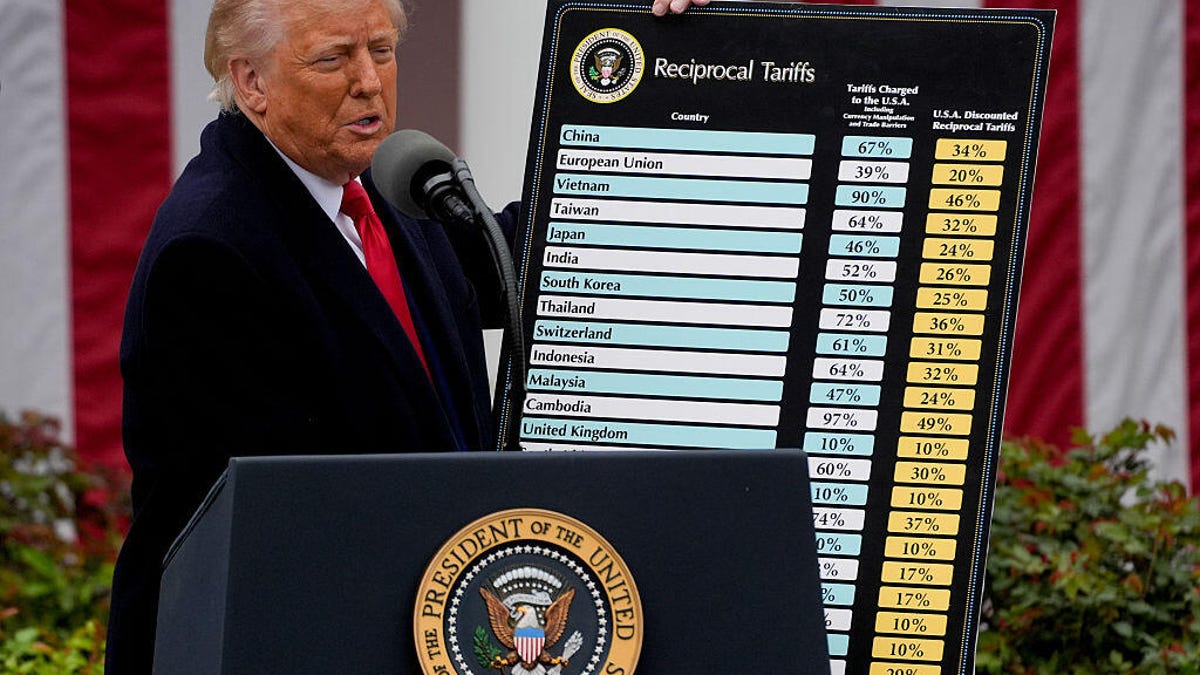Federal Court Blocks Trump's Tariffs, Finding the President Overstepped His Authority

The Court of International Trade ruled that Congress has sole authority to regulate trade with other countries

President Donald Trump holds a reciprocal tariffs poster during a tariff announcement at the White House in April.
A federal court on Wednesday blocked President Donald Trump's sweeping tariffs from going into effect, ruling that the emergency-powers law invoked by the administration doesn't give the president authority to impose duties on goods from nearly every US trading partner.
The three-judge panel at the New York-based US Court of International Trade concluded that Congress has exclusive authority to regulate commerce with other countries and that the International Emergency Economic Powers Act of 1977 -- the crux of Trump's argument to impose the tariffs -- doesn't give the president "unbounded" authority to impose the duties.
"An unlimited delegation of tariff authority would constitute an improper abdication of legislative power to another branch of government," the court wrote in its opinion. "Regardless of whether the court views the president's actions through the nondelegation doctrine, through the major questions doctrine, or simply with separation of powers in mind, any interpretation of IEEPA that delegates unlimited tariff authority is unconstitutional."
"The challenged Tariff Orders will be vacated and their operation permanently enjoined," the panel ruled.
White House spokesperson Kush Desai said that trade deficits amount to a national emergency "that has decimated American communities, left our workers behind, and weakened our defense industrial base -- facts that the court did not dispute." He added that "the administration is committed to using every lever of executive power to address this crisis and restore American Greatness."
Trump has repeatedly said the tariffs would bring back manufacturing jobs to the US and help reduce the federal budget deficit. But since Trump announced his "Liberation Day" tariffs in April, global financial markets were left upended and many business leaders sounded alarms about the economic damage they would cause.
Since then, the president has repeatedly delayed the enforcement of certain rates, most recently kicking a 50% duty against the European Union to July at the earliest, leaving a lot of uncertainty in the present moment.
Wednesday's ruling was handed down by a panel comprised of Timothy Reif, a Trump appointee; Jane Restani, who was named to the bench by President Ronald Reagan; and Gary Katzman, an appointee of President Barack Obama.
The ruling came in response to a pair of lawsuits, one filed by the Liberty Justice Center, a nonpartisan organization representing five small US businesses that said they were harmed by the president's tariffs, and another filed by a group of 12 states, led by Oregon.
"This ruling reaffirms that our laws matter, and that trade decisions can't be made on the president's whim," Attorney General Dan Rayfield said in a statement.
This story originally appeared on: CNet - Author:UK GAG


















